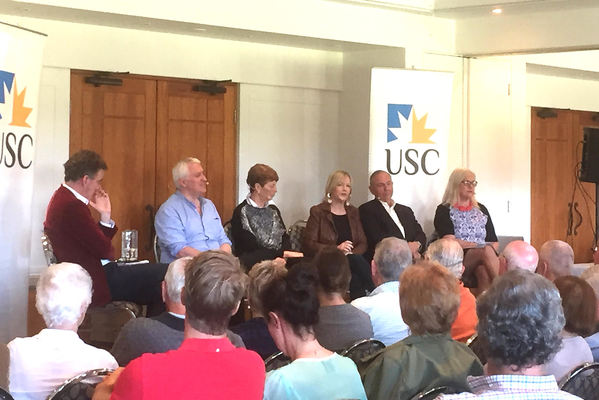By Margaret Maccoll
Some 47 per cent of current jobs are in danger of disappearing in the next 20 years and it’s not just mechanical tasks at risk – there are plenty of white collar jobs on the chopping block.
As technology becomes increasingly smarter governments, schools, universities and job seekers are asking what will be the future of work.
A panel of guests including an author, economist, human resources expert and former chair of both the ABC and Australian Stock Exchange brought mixed reactions to the subject at the forum, The Future of Work, hosted by the Noosa Alive festival.
Economist Professor Judith Sloan said similar questions were asked in the 1930s and 1950s when jobs came under threat from technological advancements.
“Do we feel sad that machines spray-paint cars and there’s no longer a typing pool?” she said.
What she thought was important for people to have to secure future work was judgement, flexibility, commonsense and interpersonal skills.
“We shouldn’t think we as a society couldn’t make decisions on the pace technology takes over,” she said.
Former Australian Stock Exchange and ABC chairman Maurice Newman however believes there will be disruption across the board and it will cause pain as automation or artificial intelligence take over jobs and do “things we didn’t think possible”.
Youth advocate Jan Owens said research showed technological changes would mean more time would be spent learning on the job and working on strategies, interpersonal skills and creativity and people will need to become more self-directed.
Judith said a university education wasn’t necessarily the key to the future and it would be giving young people false hope to tell them that.
However HR executive Jenny Brice said in today’s job market applications and resumes were frequently read by computers and failure to have a university degree might immediately disqualify a job candidate without them ever sighting a human.
If technology takes over jobs, the question of a universal basic wage was raised.
Maurice said it would be destructive and would disengage people from doing better.
But author and academic Tim Dunlop pointed to studies that showed having financial security made people more productive and more entrepreneurial.
“What nearly all entrepreneurs have in common is rich parents,” he said. “They have their own safety net.”
The forum, moderated by ABC Radio National presenter Paul Barclay, will be available on ABC podcast in the next couple of weeks.







